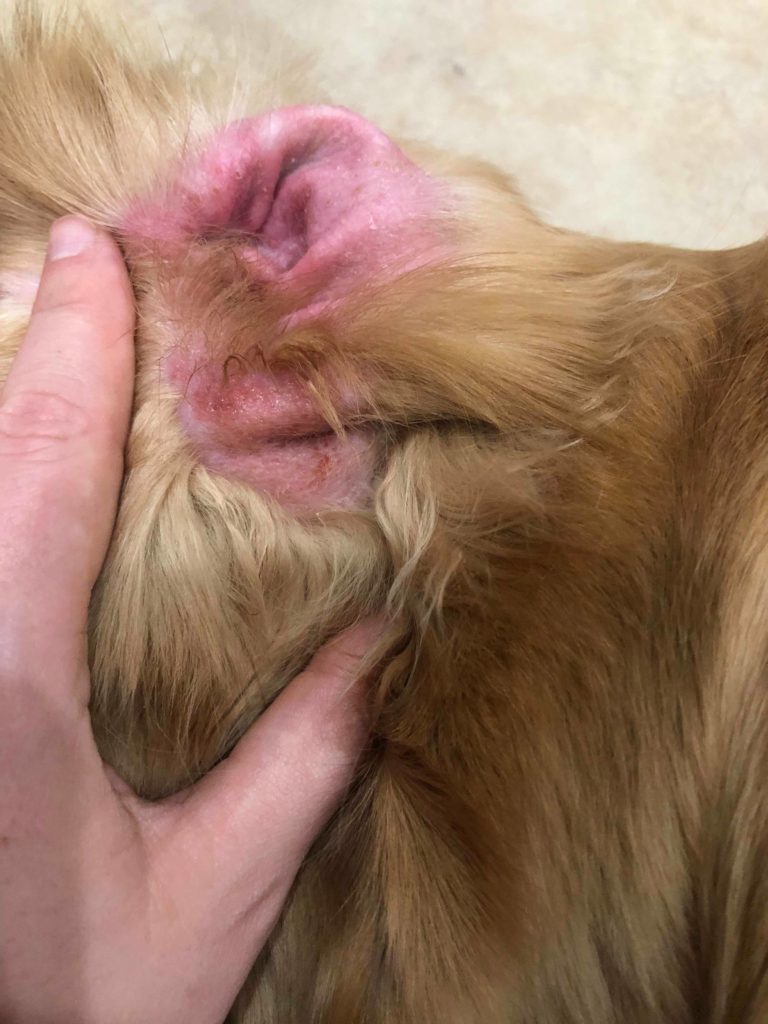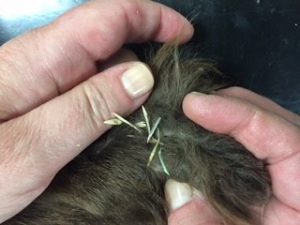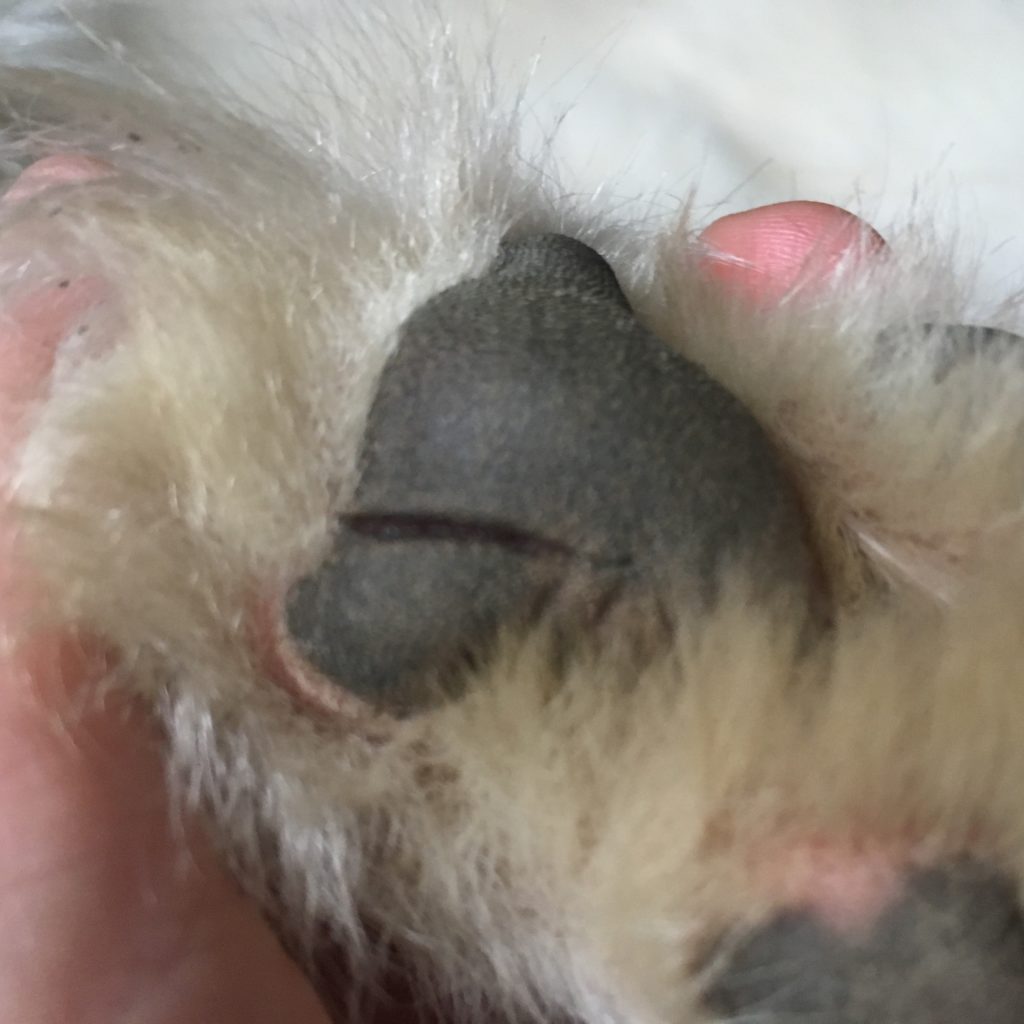WE DISCUSS VARIOUS TYPES OF ILLNESS, INJURY AND CONDITION THAT DOGS FREQUENTLY DEVELOP OR EXPERIENCE
Similar to when you have a child, it is important to learn how to recognise the signs of common ailments in your dog, be able to identify the cause or contributing factors (so as to prevent it recurring or continuing), and know the various ways to treat and/or manage it. These common issues include infections (ears, eyes), paw/claw injuries, environmental factors (grass seeds etc.), skin conditions (tags, hot spots etc.) and underlying illnesses like hip dysplasia and arthritis. We break these down below.
**PAGE CURRENTLY UNDER CONSTRUCTION**
Ear Infections

Bacterial, Fungal or Viral infections of the ear and ear canal are fairly common in dogs.
Particularly common in long/floppy eared breeds and those who love water e.g. Spaniels, Basset Hounds, Golden Retrievers.
Can occur in different parts of the ear and has different treatments respectively.
Signs: shaking head a lot, scratching ears, rubbing head along objects, red inner ear, crusting, weeping graze style cuts, dark “gunk”, bad/sweet smell
Causes/Factors: water in the ear from swimming/bathing, allergies, sweat getting under ear flaps
Frequent Treatments/Management: ear rinses/washes, ear wipes/pads, frequent wiping, steroids, antihistamines, creams. Worth going to the vet if it is the first occurrence, to get appropriate treatments, or if it is a recurring problem to work out underlying cause and a longer term treatment plan.
Eye Infections
description
Signs:
Causes/Factors:
Frequent Treatments/Management:
Grass Seeds

Grass seeds and burrs can often get caught up in dog’s fur, and due to their sharp end, they can end up embedded in between toes, in the armpit, groin, under their tail, close to the skin or in orifices (eyes, ears, nose). Grass seeds must be removed properly, promptly and fully as otherwise they can migrate around the body.
Signs: vigorously licking or chewing constantly at an area, visible grass seed awns sticking out of the skin, red swollen area (in the paw, skin or ear), limping, tearing/weeping eye, sudden constant sneezing or blood from the nose. Severe: lump with pus or blood oozing out (grass seed no longer visible – has migrated into the body) or difficulty breathing due to inhalation of grass seed – TAKE TO VET URGENTLY IN BOTH CASES.
Causes/Factors: rolling in long grass, walking and playing in long grass – the seed heads attach to the dog’s coat. Long haired dogs more susceptible to serious problems (as grass seeds are more easily hidden beneath their fur and take longer to be discovered).
Frequent Treatments/Management: check your dog daily for grass seeds, keep long haired dog’s fur well trimmed, avoid walks in long grass if possible. Be particularly vigilant in summer. If a grass seed is caught in your dog’s coat or the very surface of their skin, carefully take it out, making sure to get all parts of the grass seed. If fairly embedded in or under the skin, or if you think they may have one in their ears, nose or eyes, seek veterinary attention urgently.
Hot Spots
description
Signs:
Causes/Factors:
Frequent Treatments/Management:
Paw Pad Injuries

Including cuts from, or embedding of, objects, burns, chemical spill injury, and splits or crusting from dryness.
Signs: limping, avoiding putting pressure on the paw, excessive licking, bleeding, visible crusting or cuts, patches of discolouration
Causes/Factors: stepping on sharp objects underfoot, walking on hot pavements (a common cause of burns)
Frequent Treatments/Management: washing/flushing any debris out of wounds, putting pressure on wounds with gauze and bandage, using an ice pack for burns, using moisturising balms for dry paw pads. If no improvement or difficulty/reluctance walking or any doubt about the cleanliness of wounds then cover and see your vet as the paw pad area can be difficult to heal if not correctly managed.
Tooth Decay
description
Signs:
Causes/Factors:
Frequent Treatments/Management:
Water Intoxication
description
Signs:
Causes/Factors:
Frequent Treatments/Management:
Dew Claw Injury
description
Signs:
Causes/Factors:
Frequent Treatments/Management:
Warts and Skin Tags
description
Signs:
Causes/Factors:
Frequent Treatments/Management:
Skin Cancer
description
Signs:
Causes/Factors:
Frequent Treatments/Management:
Hip and Elbow Dysplasia
description
Signs:
Causes/Factors:
Frequent Treatments/Management:
Arthritis
description
Signs:
Causes/Factors:
Frequent Treatments/Management:
Seizures
description
Signs:
Causes/Factors:
Frequent Treatments/Management:
**information sources**
(Alongside personal experience and knowledge)
AKC: Health
How to Deal with Cracked Pads etc.
Grass Seeds and Dogs

